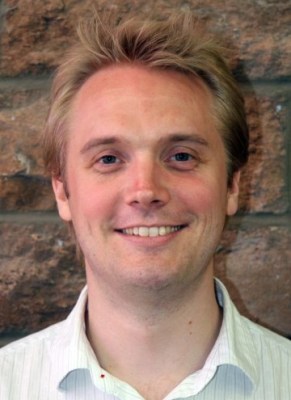Supercell, the iOS gaming company that raked in $179 million in the first quarter of this year with just 100 employees, is pulling a social gaming veteran onto its board.
Kristian Segerstrale, who sold Playfish to EA for more than $300 million and eventually became its executive vice president of digital, is joining Supercell’s board. It’s not a surprise since he was one of the Supercell’s very first investors through a firm he started called Initial Capital.
“Supercell is incredibly ambitious,” he said. “They are so super thoughtful about how to genuinely how create the most successful gaming company for the next several decades. That’s an incredibly enticing opportunity.”
Segerstrale and Supercell’s CEO Ilkka Paananen go way back — like more than 10 years. Both are gaming veterans, with Paananen starting and then selling Sumea to Digital Chocolate and Segerstrale co-founding Macrospace, which later became Glu Mobile through a merger with Sorrent.
“Ilkka and his team are young. They only 34 or 35, but they have this grizzly attitude of having seen it all,” he said. “They’ve all been around long enough to see success is fleeting if you don’t perfect it.”
Indeed, Supercell’s massive $130 million round earlier this year was predicated on just two games — Hay Day and Clash of Clans. Both are still in the top 5 grossing titles in the U.S., but since this is a hits-driven business, the question is always about what’s next?
“Most companies would give into the idea that more games equals more revenue. But in the games market, the power curve is so strong that releasing a B title is a distraction and is worthless,” Segerstrale said. “You really need to make games that are in the top 20 to make meaningful revenue. And the only people who makes games in the top 20 are the very, very best talent in the world.”
Paananen has grown the company very slowly despite its massive profit margins. In the first quarter of this year, the company $104 million in profit. That’s more than 10 times the net income that Zynga made in the same period with about 1/30th the number of people.
He has small teams of people develop new titles, and the company kills ones that don’t perform well.
They also go out of their way to make the company feel more like a family. Just earlier this month, Supercell flew all of its employees and their significant others for a retreat out near Barcelona, Spain.
“The way to create the best home for this kind of talent is to create these very small, very independent companies and have a completely flat hierarchy,” Segerstrale said.
The other question is whether the venture model itself creates too many pressures to scale quickly. Or even whether the venture model is even suited for contemporary gaming companies at all since the good ones don’t need capital for operations. It also can make it harder to financially reward later employees with equity. Plenty of other gaming companies like Minecraft-maker Mojang have bootstrapped and avoided pressures for an exit or an IPO.
“It’s a question we think an awful lot about. They have this steely determination to prove that this is entirely possible — that you can create a great company for the long-term without compromising in the short-term,” Segerstrale said.
